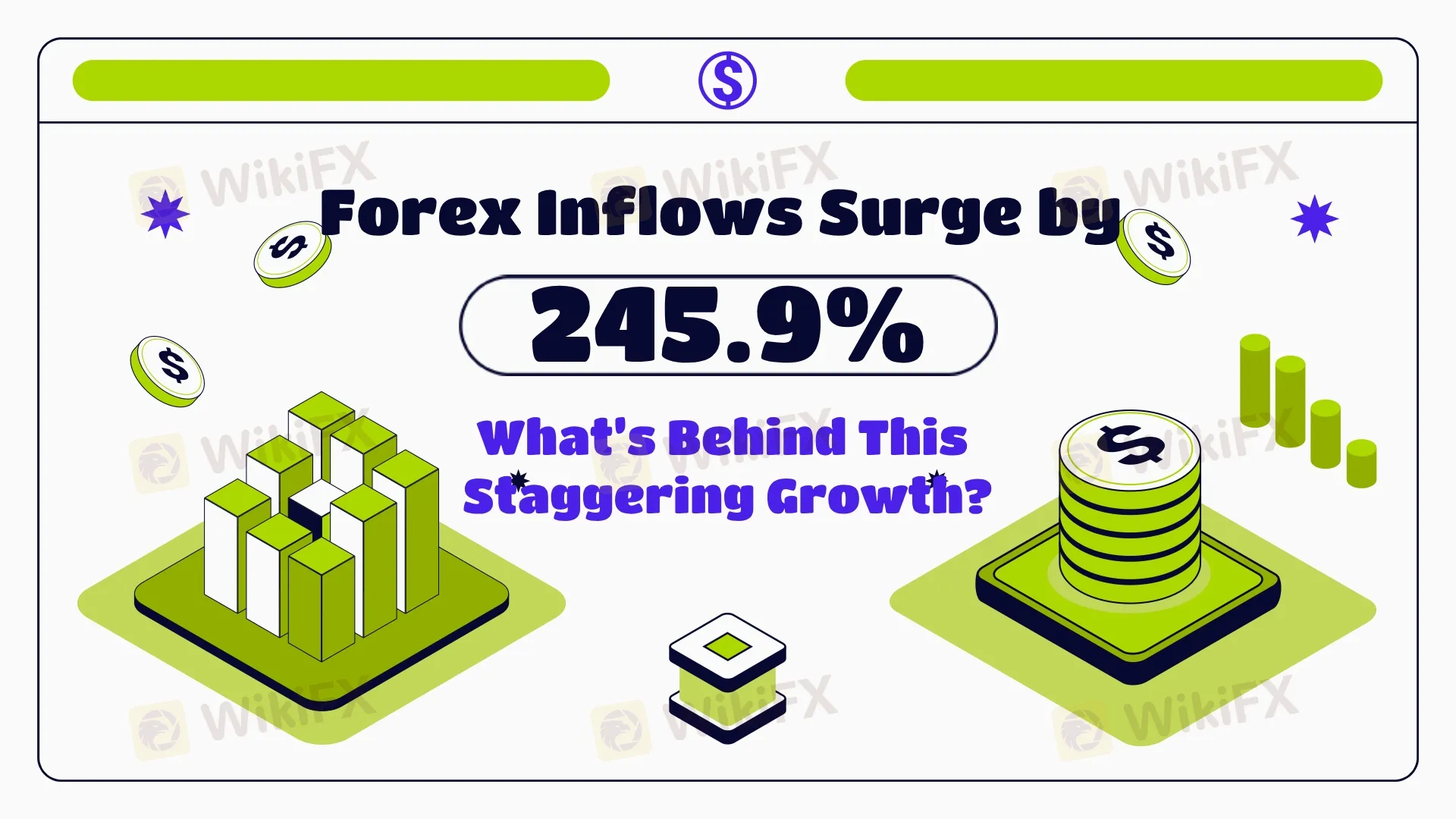简体中文
繁體中文
English
Pусский
日本語
ภาษาไทย
Tiếng Việt
Bahasa Indonesia
Español
हिन्दी
Filippiiniläinen
Français
Deutsch
Português
Türkçe
한국어
العربية
Forex Inflows Surge by 245.9%, What’s Behind This Staggering Growth?
Abstract:As of November 2024, Nigeria's net foreign exchange inflows have surged to $5.95 billion over the past year, marking an impressive increase of 245.9%, with a significant rise in foreign currency flowing into the country's economy.

According to the Central Bank of Nigeria (CBN) economic report, the country's foreign exchange inflows have notably increased over the past year. In November 2023, the foreign exchange inflows were $1.7 billion, whereas this figure surged to $5.95 billion in November 2024, reflecting strong momentum in foreign exchange inflows.
However, on a monthly basis, the net foreign exchange inflows in November 2024 slightly decreased compared to October due to reduced foreign exchange inflows through banking channels. In October 2024, Nigeria's net foreign exchange inflows were $4.86 billion, whereas in November, it rose to $5.95 billion. Meanwhile, total foreign exchange inflows decreased from $9.15 billion in October to $8.4 billion in November. Notably, foreign exchange outflows also saw a significant decline, dropping from $4.29 billion to $2.45 billion.
During this period, the Naira depreciated against the US dollar. Additionally, the average foreign exchange turnover on the Nigerian Financial Foreign Exchange Market (NFEM) increased by 24.78% from $241.65 million in October 2024 to $301.52 million in November.
Net Foreign Exchange Flow Explained
Net foreign exchange flow refers to the difference between the total amount of foreign exchange flowing into a country or economy and the total amount flowing out within a given period. It reflects the movement of capital in the foreign exchange market of that economy. Specifically, when net foreign exchange flow is positive, it means the foreign exchange inflows into the economy exceed the outflows, indicating that the country's foreign exchange reserves are being replenished and there is a healthy inflow of capital.
Disclaimer:
The views in this article only represent the author's personal views, and do not constitute investment advice on this platform. This platform does not guarantee the accuracy, completeness and timeliness of the information in the article, and will not be liable for any loss caused by the use of or reliance on the information in the article.
Read more

Bank Negara Malaysia Flags 12 New Companies for Unauthorised Activity
Bank Negara Malaysia (BNM) has updated its Financial Consumer Alert List (FCA List) by adding 12 more entities, reinforcing its efforts to warn the public against unregulated financial schemes. Check if your broker made the list!

TradingView Brings Live Market Charts to Telegram Users with New Mini App
TradingView has launched a mini app on Telegram, making it easier for users to track market trends, check price movements, and share charts.

March Oil Production Declines: How Is the Market Reacting?
Oil production cuts in March are reshaping the market. Traders are closely watching OPEC+ decisions and supply disruptions, which could impact prices and future production strategies.

How to Calculate Leverage and Margin in the Forex Market
Leverage amplifies both potential profits and risks. Understanding how to calculate leverage and margin helps traders manage risks and avoid forced liquidation.
WikiFX Broker
Latest News
Exposing the Top 5 Scam Brokers of March 2025: A Closer Look by WikiFX
Gold Prices Climb Again – Have Investors Seized the Opportunity?
Webull Launches SMSF Investment Platform with Zero Fees
Australian Regulator Warns of Money Laundering and Fraud Risks in Crypto ATMs
The Withdrawal Trap: How Scam Brokers Lure Victims into Paying More
FCA to Investors: Think Twice Before Trusting These Brokers
Trump\s tariffs: How could they affect the UK and your money
Trump gambles it all on global tariffs he\s wanted for decades
TradingView Brings Live Market Charts to Telegram Users with New Mini App
HTFX Spreads Joy During Eid Charity Event in Jakarta
Currency Calculator







